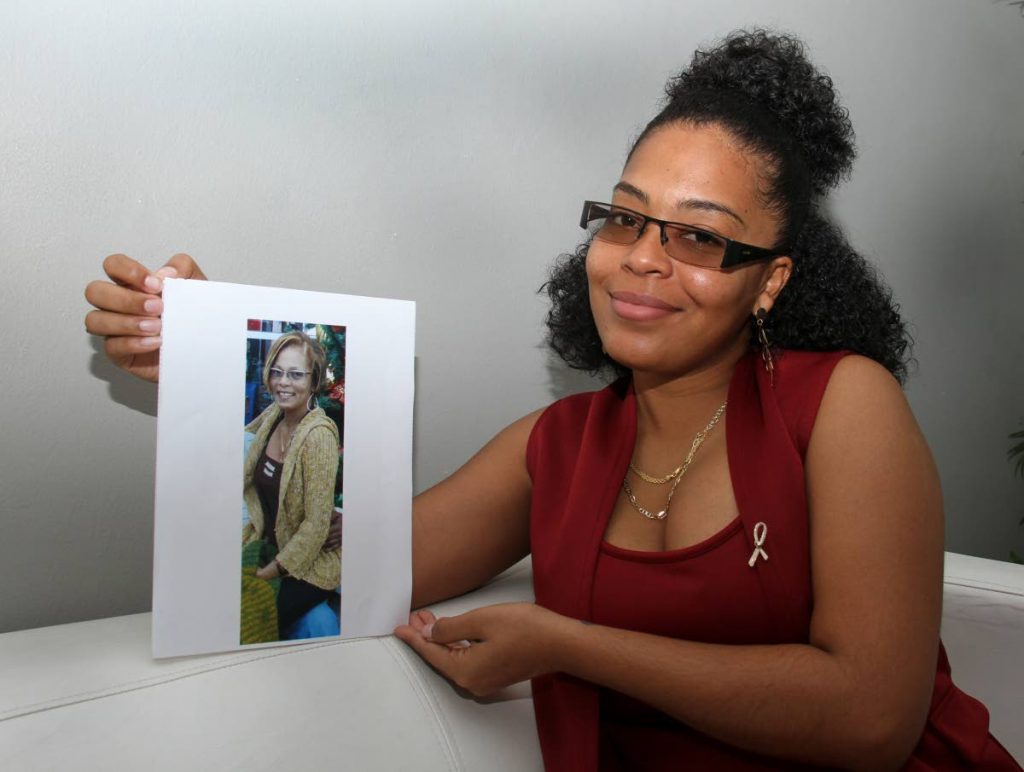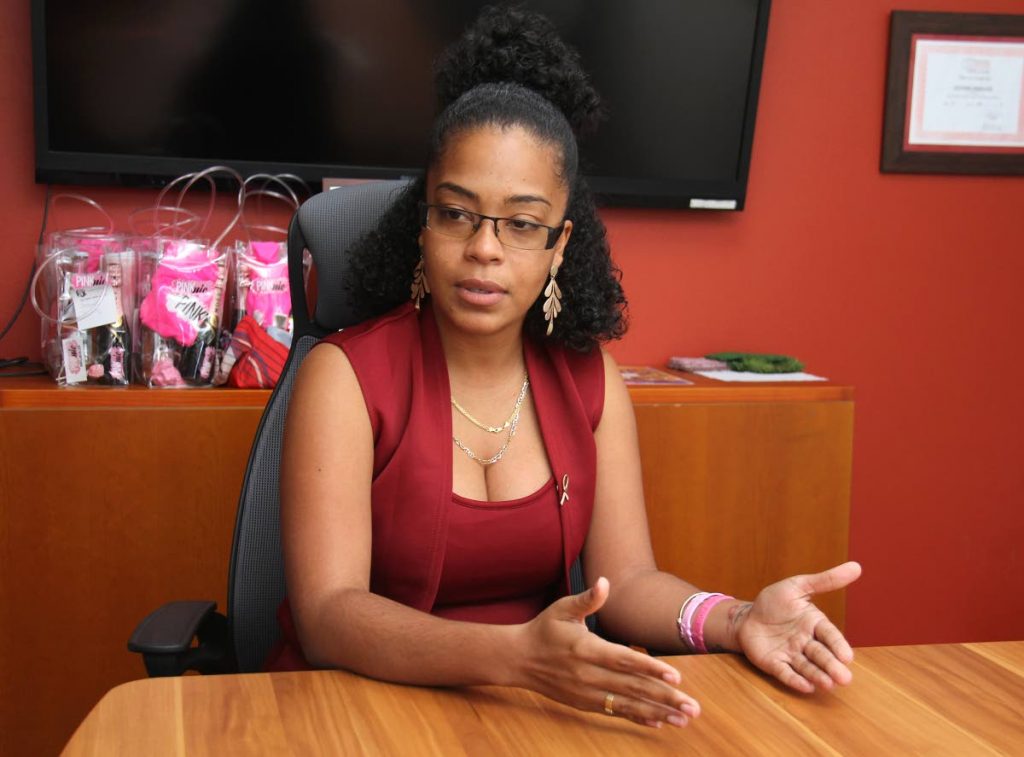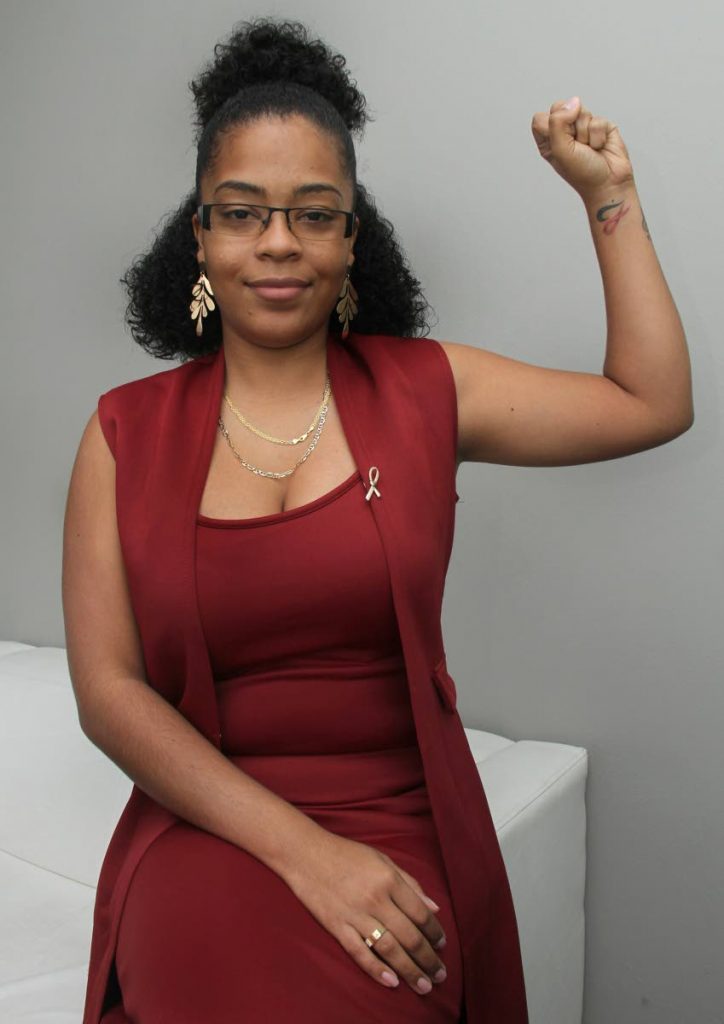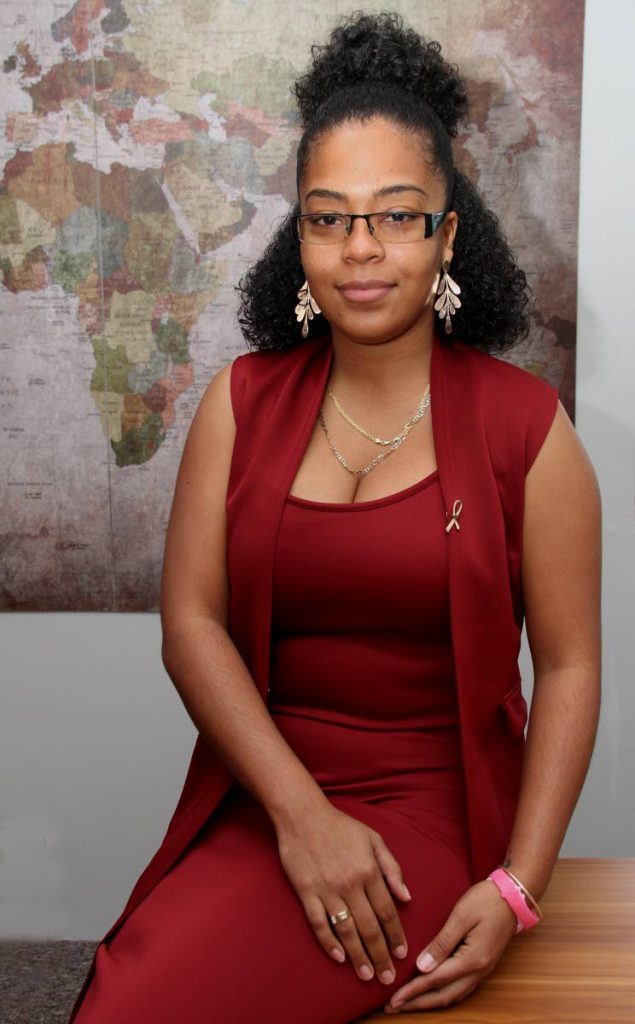The cancer no one talks about

KHADINE WILLIAMS, a 28-year-old client service co-ordinator, struggles every day to deal with the loss of her mother, Anne-Marie. When Williams was 18, her mother was diagnosed with breast cancer. On September 3, 2011, a mere two years later she lost the battle at the age of 41.
Since then Williams has bottled the pain of her loss in a recess of her heart. But it has eaten at her spirit to the point that she admitted to lashing out in various ways, and doing things that her mother, were she alive, would not be proud of; things that she did not want to tell Newsday about.
This is the cancer no one talks about. The cancer that eats away at families, friends, loved ones, and significant others who have to stand aside helplessly as the people they love battle with terminal illness.
Cancer doesn’t only affect the people who are diagnosed with it. Relationships, families and marriages and the people around the patient are also affected by the disease, and for people like Williams, the destructive effects of cancer endure even after its victim is finally laid to rest.
Williams confessed she did not like talking about her mother’s death. She has not gone to counselling and seldom confides in others about the pain of her loss. Even when speaking to Newsday about the effect of the loss of her mother on her and her family, she wept and wrung her hands as she struggled with emotions she had been wrestling with since she was a young adult. She said this was only the second time since her mother's death that she had spoken about it.
“I never liked talking about it. I still don’t. It's only because of the cause (breast cancer awareness), believing I can actually give good input and help someone in the process. I still feel angry and emotional and two-minded about it. But I still push through, because I do want to help people.”
She advised people who were going through what she did ten years ago to open up to anyone they can confide in and talk about how they feel, as hard it may be.
“If you need to, you could do counselling, you could talk to a friend, your best friend, your boyfriend, relative – anyone.
"If you don’t, you are probably going to end up lashing out and making mistakes you would not have made before, because you are not dealing with your emotions in the right way. Then you will be left with regret – regret you didn’t deal with the pain, regret you made poor decisions or mistakes that you would not have made, and just basically feel like you are not yourself.”

Williams called her mother the glue that kept their entire family together. She said Anne-Marie, who was an accountant with a German company, was the person who engaged all the other family members. Whether it was a birthday celebration, a beach lime, meeting for the holidays, or just an informal gathering, she ensured the entire family came together and kept close.
Williams had a close relationship with her mother, being her only child. She told Newsday her mother made it a point, even before she was diagnosed, to share first experiences with her.
“A lot of parents are iffy about their kids drinking alcohol. My mom told me, 'The first time you are drinking alcohol would be with me.' So said, so done,” she recalled. “The first drink I had with her was Baileys.
“She would always tell me not to rush growing up, to enjoy things while you are young, because when you get older you won’t get the time back.”
One evening in 2009 Anne-Marie sat her down, along with her grandmother and aunt, at their home in Couva and gave her the news that would affect her entire life. Anne-Marie had stage four cancer.
“I broke down in tears,” Williams said. “I didn’t know how to deal with it. A million questions ran through my brain. What was I going to do now? How long do I have with my mom? Does she have to go away? What does she have to do to get better? Will the treatment be painful?
"All these things I started to worry about right at that moment.”
For the next two years Anne-Marie fought the disease while Williams agonised. Anne-Marie eventually flew to Florida for treatment for a little more than six months, and the time they spent together became very limited. They didn’t see each other but kept in contact by phone.

Even then, their conversations were short, because the chemotherapy and radiation Anne-Marie had to undergo taxed her body and drained her energy. She needed as much rest as possible.
In August 2011, Anne-Marie came back home. The entire family rejoiced, because they believed she had been given a clean bill of health. Anne-Marie celebrated her return and her birthday that month, surrounded by family and friends.
But that joy would only last a month. On September 3, Anne-Marie started complaining of pain and said she couldn’t breathe. Williams rushed to comfort her and find out what was going on. Anne-Marie turned to her and asked for help.
“The last thing she said to me was call someone, because of the pain. I reached out to the person, but I didn’t get through.”
Relatives took her to hospital, but it was too late. They had to come back without Anne-Marie and gave Williams more devastating news. The cancer had finally won.
“I didn’t know how to handle it. To this day I still regret not being able to reach the person she asked me to call.
"It weighed on me for years. I felt like I could have done more, I could have done better, maybe if I did more she would still be here,” Williams said.
Williams had lost one of her greatest influences, and her family had lost the bond that held them together. Williams said Anne-Marie’s death left a void. The family gatherings lessened and the tightness they had was gone.
Williams would later find out a lot of things her mother had not told her. She said her mother would always put another person before herself, and because of that she held back a lot of things from her daughter. It was only in conversations with relatives after her death that Williams found out Anne-Marie and her cousin had been visiting the doctor for tests. She was told Anne-Marie did not want to worry any of her relatives until the doctor brought back a confirmed result.
Anne-Marie confided in another relative that even in the early stages she knew she would not beat the disease.
Williams believed Anne-Marie did the same thing at the end – she returned from the US knowing the disease had reached an aggressive state, and wanted to come home and share memories with her family, without the worry and emotional strain of knowing she was near death.

Anne-Marie also worried about missing out on first experiences with her daughter. But without her, Williams' life ground to a halt.
“There are so many things that I would like to do, so many things I would like to accomplish but it bothers me. I have to get married, have children of my own – but I don’t want to do those things, because she is not here.
“That is why I would suggest that people who have a relative who has cancer, they should talk to the person. Let them know that they (the relative) would be okay. Because that is the first thing the cancer patient is going to worry about: is my child going to be okay? As a parent you will never feel okay not being there for your child.
"You have to let them know that you will be there for them in the hard times. I didn’t.”
Ten years later, the pain Williams dealt with from the first time she heard the news of her mother’s illness still endures.
In her mother's memory, Williams got three tattoos on her wrist. The first was a pink ribbon, the symbol of breast cancer awareness, with her mother's initials on it, the second, an infinity symbol with her initials and the word "love" on it.
"It means my love for her will be infinite," she said.
The third tattoo is in the shape of a heart, but one side is replaced with a pink ribbon.
Williams said she is beginning to discover that speaking about her experience helps her cope, although she still feels uncomfortable. The first time she spoke about it was for a brief interview which was shown at the launch of Pinknictt, a rose-themed event scheduled for October 28.
"It was a stepping stone for me," she said. "One of many I would have to take. I was nervous but in the end it felt good."
She said even during the launch of the event, which hopes to bring in about $100,000 to donate to breast cancer research, she met several people who embraced her for sharing her story.
"I was taken by surprise. I never expected that kind of reaction. I guess they knew to themselves they were probably not the ones who dealt with the disease, but might have lost someone to the disease. On some strange level we shared a connection and felt the need of embracing someone who got it. It felt good knowing that someone was there that understood my story."
Not a single day passes when she doesn’t wish her mother was still alive.
“If she were here right now, I would tell her I love her. I would say I miss her. I would say I know I may have probably done some things that were not to her liking, and I am sorry, and I just want to make her proud.”


Comments
"The cancer no one talks about"